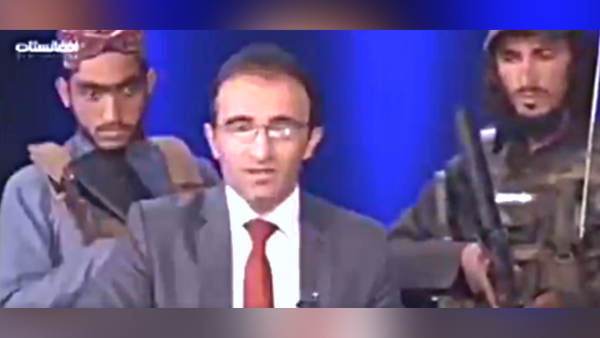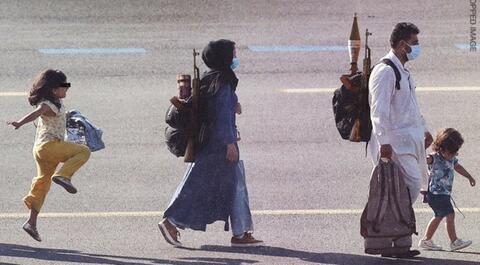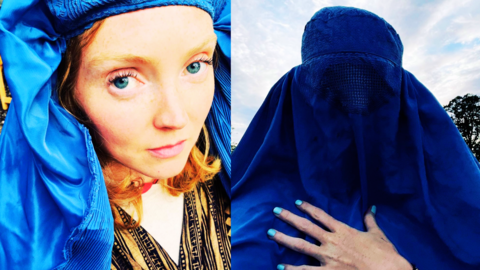Weeks after the Taliban reassured Afghans that the group has learned a lot since it left power in 2001, pledging to protect freedoms and allow space for political life, a scene that appeared during a political show on TV hinted at a different reality.
So here we have a glimpse of our “new Taliban”. ?♂️?♂️ https://t.co/pnAMZQJcgj
— Intikhab Amir (@intikhabamir) August 30, 2021
Starting the episode, the presenter of the political debate show Pardaz- aired on Afghanistan TV- appeared with two Taliban gunmen in the background, telling the public that they "should not be afraid of the Taliban" and that "they should cooperate with the group with no fear." According to Afghan commentators, the presenter used two of the main languages spoken in Afghanistan, Dari and Pashto.
Afghanistan TV - surreal
This is what a political debate now looks like on Afghan TV, Taliban foot soldiers watching over the host. The presenter talks about the collapse of the Ghani govt & says the Islamic Emirate says the Afghan people should not to be afraid #Afghanistan pic.twitter.com/oEverVgLOE— Yalda Hakim (@BBCYaldaHakim) August 29, 2021
The programme is called Pardaz. In this longer video, the presenter interviews a Taliban fighter who presumably outranks the rest of the lot in the studio. The presenter switches from Dari to Pashto, which unfortunately I don't speak.pic.twitter.com/qPWexsQd2T
— Kian Sharifi (@KianSharifi) August 29, 2021
However, the online reaction to the TV appearance was not welcoming of the Taliban, neither has it achieved its goal of addressing the public fears, as most social media users focused on the armed militants who seemed to be intimidating the presenter.
Meanwhile, many users saluted the presenter saying that he must be under so much stress going live on TV with guns pointed at him while keeping so calm and composed.
Ever since the Taliban entered Kabul on the 15th of August 2021, the group's spokesmen have repeatedly stressed their intention to maintain freedoms in the country and to not impose strict laws on Afghans the way they did in the late 1990s.









